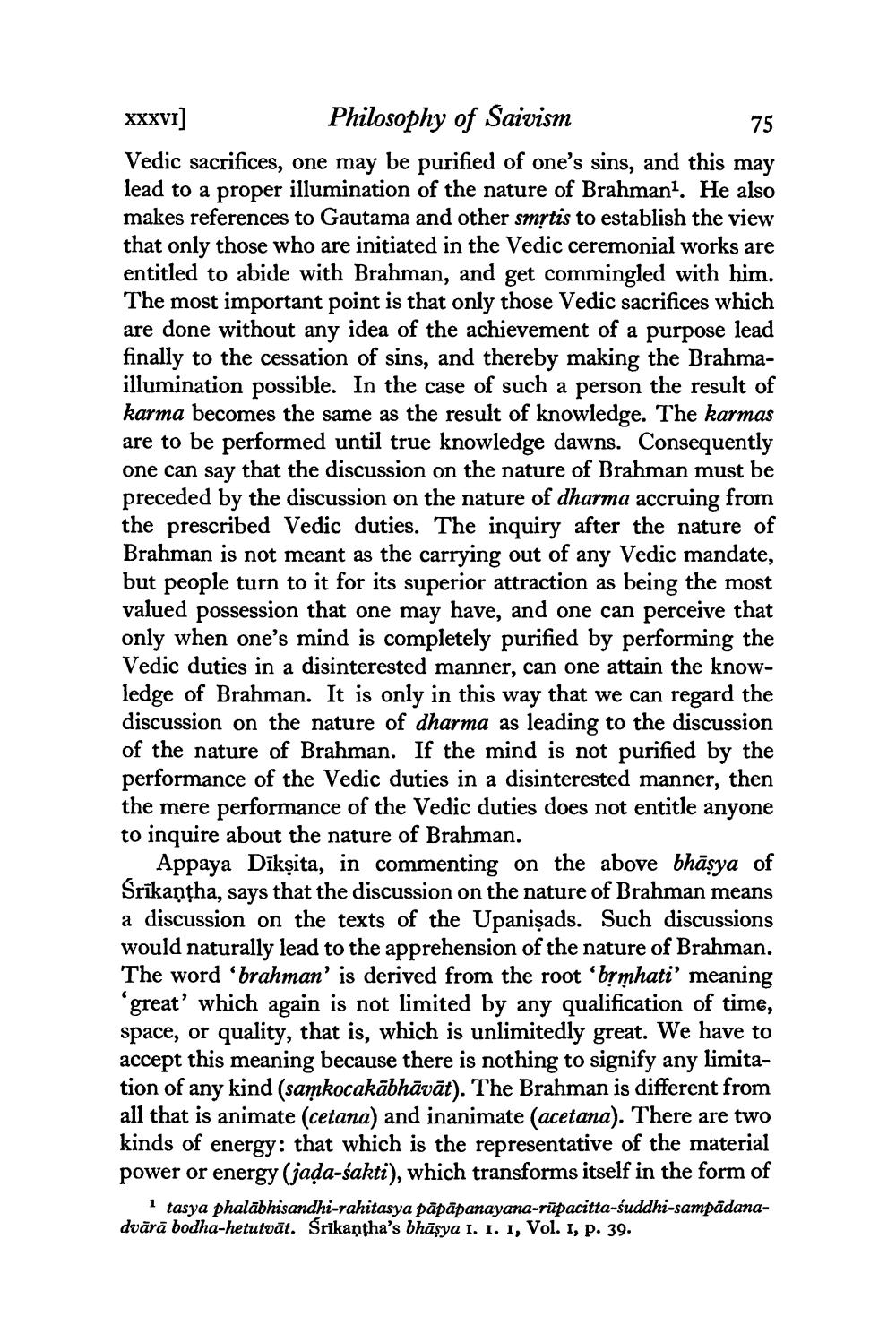________________
75
XXXVI]
Philosophy of Saivism Vedic sacrifices, one may be purified of one's sins, and this may lead to a proper illumination of the nature of Brahman'. He also makes references to Gautama and other smytis to establish the view that only those who are initiated in the Vedic ceremonial works are entitled to abide with Brahman, and get commingled with him. The most important point is that only those Vedic sacrifices which are done without any idea of the achievement of a purpose lead finally to the cessation of sins, and thereby making the Brahmaillumination possible. In the case of such a person the result of karma becomes the same as the result of knowledge. The karmas are to be performed until true knowledge dawns. Consequently one can say that the discussion on the nature of Brahman must be preceded by the discussion on the nature of dharma accruing from the prescribed Vedic duties. The inquiry after the nature of Brahman is not meant as the carrying out of any Vedic mandate, but people turn to it for its superior attraction as being the most valued possession that one may have, and one can perceive that only when one's mind is completely purified by performing the Vedic duties in a disinterested manner, can one attain the knowledge of Brahman. It is only in this way that we can regard the discussion on the nature of dharma as leading to the discussion of the nature of Brahman. If the mind is not purified by the performance of the Vedic duties in a disinterested manner, then the mere performance of the Vedic duties does not entitle anyone to inquire about the nature of Brahman.
Appaya Dikșita, in commenting on the above bhāsya of Srikantha, says that the discussion on the nature of Brahman means a discussion on the texts of the Upanişads. Such discussions would naturally lead to the apprehension of the nature of Brahman. The word 'brahman' is derived from the root 'brmhati' meaning 'great' which again is not limited by any qualification of time, space, or quality, that is, which is unlimitedly great. We have to accept this meaning because there is nothing to signify any limitation of any kind (samkocakābhāvāt). The Brahman is different from all that is animate (cetana) and inanimate (acetana). There are two kinds of energy: that which is the representative of the material power or energy (jaờa-sakti), which transforms itself in the form of
1 tasya phalābhisandhi-rahitasya pāpāpanayana-rūpacitta-śuddhi-sampādanadvārā bodha-hetutvāt. Srikantha's bhāşya I. I. 1, Vol. I, p. 39.




